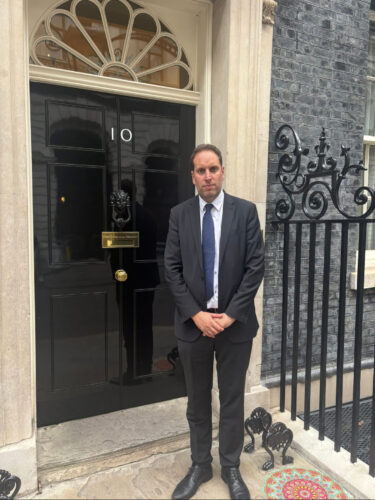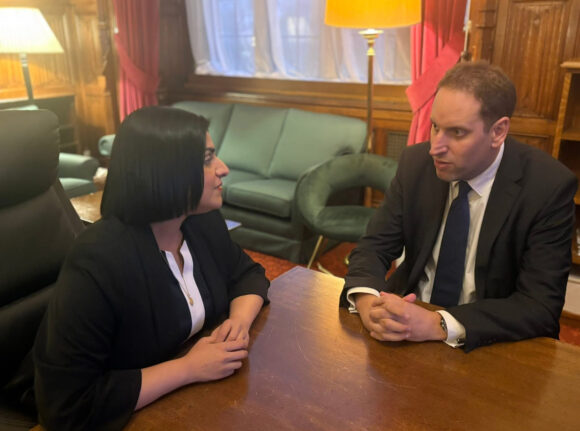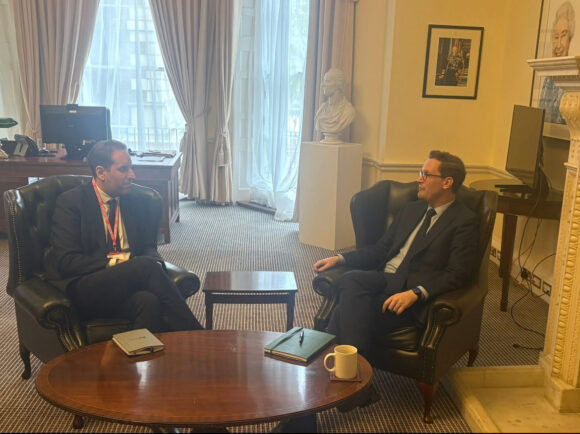
We have continued with our high level engagement and held meetings with senior advisors in Downing Street with the Home Secretary, the Rt Hon Shabana Mahmood MP; the Secretary of State for Communities and Local Government, the Rt Hon Steve Reed MP; Chief Secretary to the Prime Minister and Chancellor of the Duchy of Lancaster, the Rt Hon Darren Jones MP.
In our meetings, we thanked the Government for the manner in which it and the emergency services immediately mobilised to protect our community from further harm. We also welcomed the announcements made by several departments over the last week. The words of the Prime Minister clearly identifying the threat of “Islamist ideologies of hatred towards Jews” are important, and we expect these to be understood and actioned across government.
In response to the deadly terrorist attack, we have developed clear and concise asks of Government. As above, a cohesive response to extremism is a top priority. Individuals are being radicalised online in their homes so we require Government to urgently review online safety regulation and legislation. There is an obvious need to combat blatant antisemitism on hate marches. Even with a ceasefire agreement signed, there were once again an incalculable number of individuals promoting violence against the Jewish community on marches over the weekend. The fact this happened a mere few days after the terrorist attack murdering two British Jews seemingly without any condemnation from march organisers is deeply shameful, and a stain on our country. We thank the Prime Minister and Home Secretary for their unequivocal condemnation and their characterisation of the marches as “un-British.” It is galling that Police were diverted from using their resources to protect and reassure the Jewish community following a deadly terrorist attack.
There is hate speech across all sections of society including in some mosques, educational settings, workplaces and cultural spaces. Whenever this occurs, it must be prosecuted with the full force of the law. We have made it clear that though it is not a legal tool, the IHRA definition is the gold standard for understanding and assessing antisemitism and must remain so.
We have also emphasised that all regulators from the Charity Commission to those in the health sector need to be much firmer in addressing extremism and antisemitism. For too long, egregious cases of antisemitism that have clearly breached charitable objectives were dealt with by a weak and meaningless slap on the wrists. In addition, there have been too many cases to mention in which regulators across several sectors have been dismissive and have not properly dealt with complaints of antisemitism. When Jewish people raise issues of discrimination, they must be believed and proper action taken.
We spoke about the urgent need for proper, meaningful interfaith dialogue between different communities. This needs to address where there are disagreements, and we have highlighted the Rabbi and Imam initiatives and the Muslim and Jewish Declaration, facilitated by the JRC. As we move forward, this now needs to be a top priority for our different faith groups and the whole of civil society to help facilitate mutual respect and understanding.



